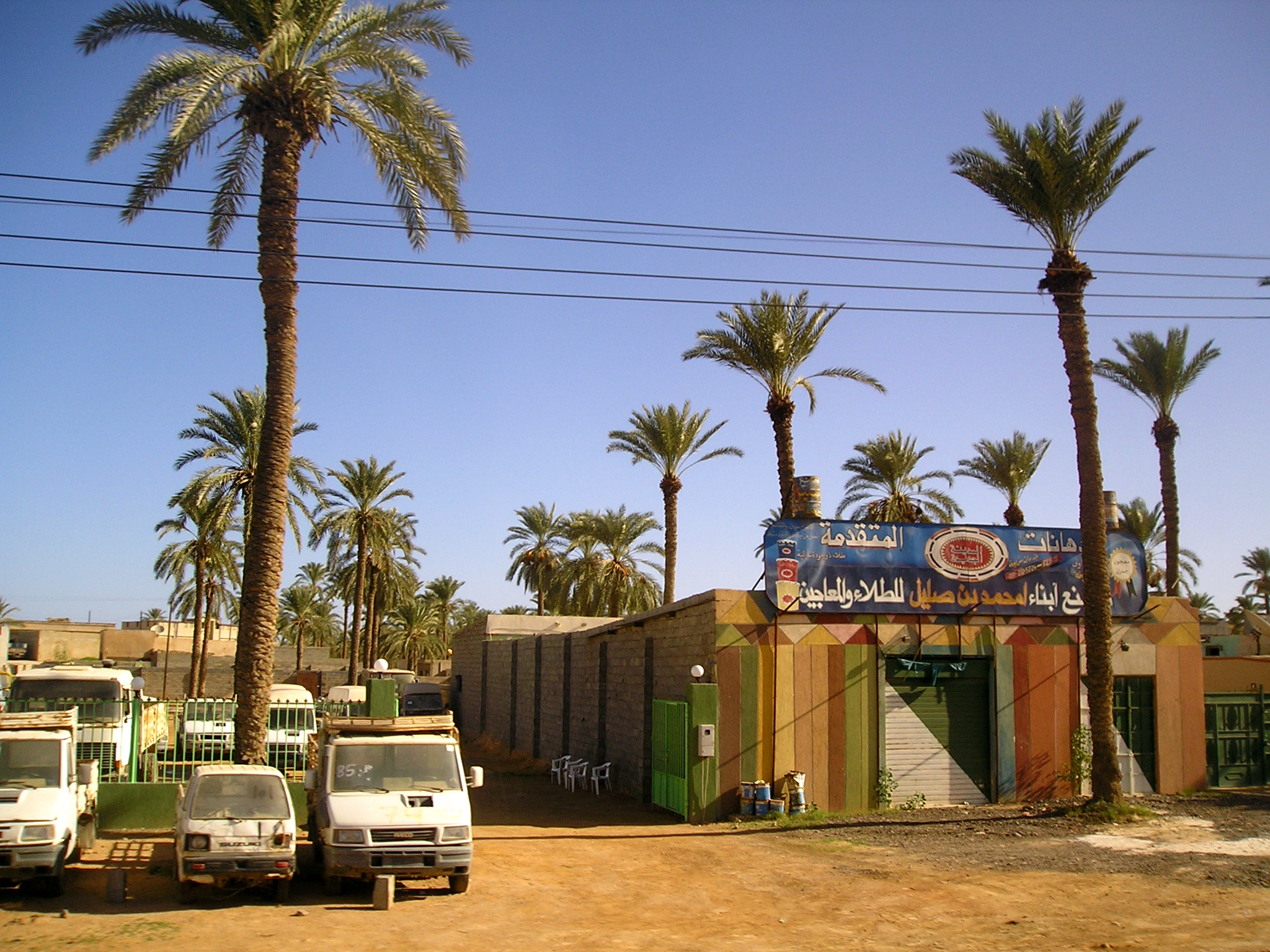Economic situation Dependence on oil
Workshop and vehicles of a car dealer in Libya
Strong dependence on exports of natural resources presents a long-term challenge for the north-African state. The oil and gas sector accounts for around 60 per cent of Libya’s gross domestic product (GDP), 97 per cent of public revenue and 91 per cent of exports. Global market prices for these resources therefore have a direct impact on the country’s economic development and on the public budget. Political conflict has affected drilling and transportation systems time and again in recent years, and oil production even had to be temporarily suspended. Significant investment is required for rehabilitation and plant maintenance.
Economic development has therefore been inconsistent. When oil prices jumped to an all-time high in 2012, the Libyan economy grew by almost 87 per cent, according to the World Bank. In the two years that followed, however, GDP dropped by almost 20 per cent. In 2019 and 2020, armed conflict interrupted oil production, and the economy shrank by 11.2 and 23.9 per cent respectively.
Progress in the peace process in 2021, however, resulted in significant economic growth (31.4 per cent). Having contracted by around 8.3 per cent in 2022, the economy started growing in 2023 by 10.2 per cent. In 2024, GDP dropped by 0.6 per cent according to the World Bank – mainly due to a decline in oil production. For 2025, growth is projected to be back at around 12.3 per cent, supported by an expected increase in oil production and higher state revenues.
Development opportunities
Libya’s economic potential is huge. The country not only has the largest proven oil reserves in Africa, the conditions for generating energy from renewables (sun, wind) are also excellent. Raw materials for construction and the associated manufacturing industries are also in plentiful supply.
However, peace and stability must be restored, and the effectiveness of state institutions rebuilt if these development opportunities are to be harnessed. Germany has been supporting the use of renewable energy sources since 2022.
As at: 18/08/2025
